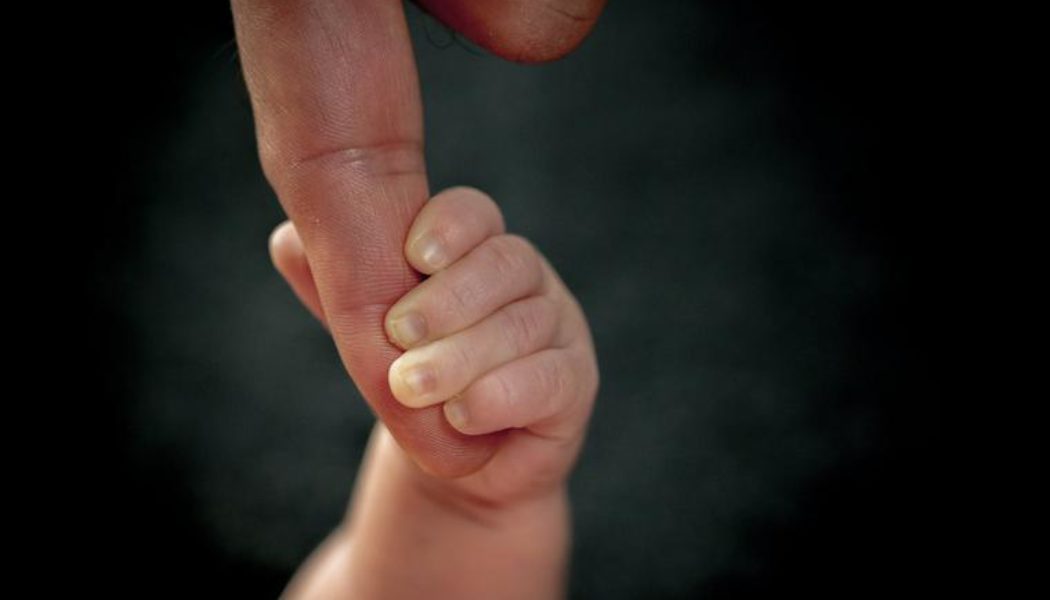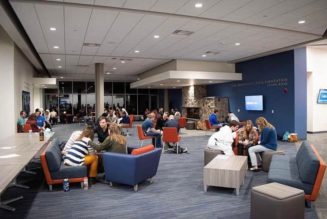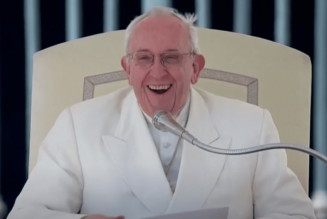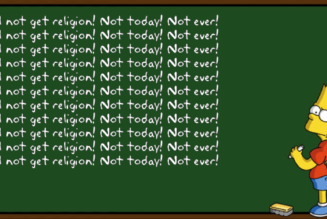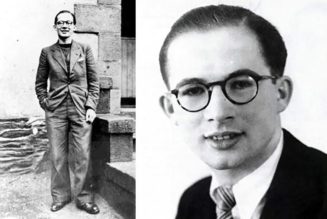
‘He will turn the hearts of fathers to their children and the hearts of children to their fathers’ (Malachi 4:6)
“You ever go on a Rachel’s Vineyard retreat?” the priest asked after my confession.
I shook my head and looked up. It was such an unexpected question, seemingly random — and it sure got my attention. Rachel’s Vineyard, Rachel’s Vineyard … I knew it had something to do with post-abortion healing. I’d mentioned that I’d been party to an abortion decades ago merely for context during my confession, but I’d received absolution and had tried to put it behind me. My wife knew about it, and a couple close friends, but it was over and done. Why revisit such a tragic event? What’s the point?
“You should consider it,” my confessor continued. “It sounds like it’s time.”
Turns out, he was right, and I’m so grateful he followed his gut — or the prompting of the Holy Spirit, or who knows what? — and asked that question. Of course, it wasn’t a question, really, but a challenge and an invitation. Did I have the courage to wrestle my painful past? And could I be humble enough to accept healing ministrations for that past beyond absolution?
“Yes,” I said to the priest. “Maybe you’re right. I’ll do it. Thanks.”
Rachel’s Vineyard weekend retreats grew out of a grassroots effort initiated by Theresa Karminski Burke in the 1980s. Burke, a clinical psychologist, channeled her academic interest in post-abortion suffering into a structured retreat experience that facilitates recovery and reconciliation. It was easy enough to track one down — the Rachel’s Vineyard website lists contact information for retreat coordinators throughout the United States and around the world. And the application process was straightforward: An email exchange, then the completion of a form describing my situation and bit about my relevant history. There was an emphasis on confidentiality, as you’d imagine, both on the part of retreat staff and potential participants. Plus, there was an undercurrent of hope through it all — that whatever healing I still needed was truly possible, and that the retreat could well be a part of it.
Moreover, in the lead-up to the weekend, it became evident that the majority of those leading it would be themselves prior recipients of a similar healing — that the women running the retreat would know firsthand what recovery from abortion entails and leads to. That was comforting in itself, but it was a sign that recovery translates into deep compassion for others affected by abortion, which frequently translates into a desire to aid those others in their own journeys back to wholeness.
So, I went — despite misgivings and fears. My wife encouraged me the day I left. “This will be a good thing,” she said. “The priest was right — it’s time.”
For the sake of anonymity, I chose a retreat pretty distant from my home — which had the benefit of giving me plenty of time to pray, pray, pray on the way. When I arrived, the retreat organizers were gracious and welcoming, and as I got settled in my room, I scanned some of the reading materials placed there for me.
At our first meeting, I met the rest of the retreatants (all women) and the leaders — including a priest. Rachel’s Vineyard isn’t only for Catholics by any means, but it’s definitely infused with a Catholic ethos and even sacramentality. Throughout the weekend, there was plenty of verbal sharing in the group — our stories, our wounds, our aspirations — but the core of Rachel’s Vineyard is about sensory experience. Much like Catechesis of the Good Shepherd, which introduces young people to spiritual truths through tactile activity, Rachel’s Vineyard retreats draw on Biblical themes to foster palpable connections with absent realities: each abortion itself — whether weeks ago or half a century — along with each abortion’s attendant life ripples that led up to and away from the event.
Then there’s each abortion’s direct casualty: the aborted baby girl or baby boy. The retreat not only made concrete the fact that retreatants did have children who were deceased on account of abortion, but it also created a space in which we could encounter those children. Give them names. Talk with them and seek forgiveness.
Does that sound corny? Weird even? Perhaps — I admit I thought it all sounded pretty corny, even in the midst of doing it. Yet I can tell you it turned out to be so, so powerful, and not only for me, but also for the host of women I was privileged to witness finally — finally! — make peace with their aborted children, with God, with themselves. I saw it; I heard it; I felt it. We all wept together, repeatedly, and grieved together — something we never got to do after our abortions. What a gift for those women, their loved ones, their families. What a gift to me.
The culmination of the weekend was a memorial service in which we all had a chance to express our sorrow, manifest our contrition and entrust our aborted children to the Father in tangible ways. Each of us got up and, among other things, read a letter to our departed sons and daughters. To give you a sense of what it was like, here’s an edited version of my letter to Adeodatus — the name, following St. Augustine’s example, I chose for my child. It means “given by God.”
Adeodatus, my dear son, I am so sorry I failed you as a father. Good dads provide for their children, protect them from harm, and model for them a Christlike character — especially for their sons. I did none of those things for you and I am ashamed.
Yes, the circumstances of your coming into existence were not ideal — complicated and fraught with deceit, betrayal and fear. Nonetheless, you were real — you are real, a real human being, a real child of God and my child — and I stood by while others took your life. I am so, so sorry.
I know you forgive me now because I know you are with Jesus now, and I know it’s impossible to be so close to him without loving like him, caring like him, forgiving like him. He’s the Good Shepherd after all — the model of providing, protecting and fathering that I wasn’t for you. But I have hope — do you share that hope with me? I have hope that I can grow — continue to grow, especially after this weekend — into Christ’s likeness, his likeness as a Good Shepherd.
You know, son, that God … entrusted to me additional children since your death. God must see that I have a potential for being a good dad — a provider, protector and model — or else why would he have given me multiple second chances? I have tried so hard to be a good father for your half-brothers and half-sisters, and I know I have failed often and even spectacularly. But I’m doing my best with them and I wish — oh, how I wish — I could have a chance to be doing the same for you.
But I can’t — you know that, and I’m confident that you forgive me and love me. Will you pray for me? Pray for my wife and the mom of your half-siblings? Pray for them, too. Pray that we all stay close to Jesus or come back to Jesus ASAP.
And pray, too, my boy, for your own mom and your half-siblings from her family. I want healing and wholeness for them, too, but I can’t help them. I can pray for them, though — please join me in that.
I love you, Adeodatus. I look forward to meeting you someday, to introduce you to your family. What joy! What joy!
Can you picture this scene? Can you imagine the intense catharsis each of us experienced as we read our letters aloud to our departed children and to each other? There’s no substitute for the sacramental reconciliation with God and his Church that every abortion occasions, to be sure. But confession and absolution are just the beginning of reconciliation for those recovering from their tragic abortion histories. I can tell you that Rachel’s Vineyard is a good place to continue that process. A graced place, a place of profound peace and peacemaking.
As I made the long drive home, I was filled with gratitude, and I felt a lightness of spirit that I can only compare to my First Holy Communion so long ago. But I was also unsettled: Why had I been the only dad retreatant? The retreat organizer had informed me that men only infrequently attend, and I suspect that’s universally true. How come? The dads of aborted children obviously suffer very different wounds than the moms, but they’re real wounds nonetheless. There are millions of post-abortive women out there who could benefit from a Rachel’s Vineyard retreat. That means there are also millions of men — your friends, our co-workers, that guy in the next pew — who’d benefit as well, not to mention their wives and children and others who’d benefit indirectly.
Perhaps an invitation is all that’s needed — you know, something simple, like, “You ever go on a Rachel’s Vineyard retreat?” It was enough for me, and it has changed my life.
For more information about Rachel’s Vineyard retreats and post-abortive healing, call 877 HOPE 4 ME (877-467-3463) or go to their website: www.rachelsvineyard.org.
Join Our Telegram Group : Salvation & Prosperity
